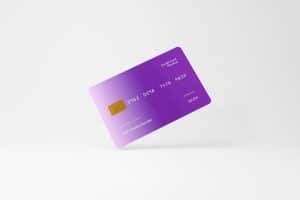How to Get a Credit Card: A Complete Guide to Approval and Smart Use

Anúncios
Understanding how to get a credit card is an important milestone in financial growth. A card is not just a payment tool—it is a gateway to building credit history, unlocking rewards, and proving financial responsibility.
Whether you live in the United States, the United Kingdom, or Australia, the process shares similarities, but each country has its own requirements.
Anúncios
Preparing well and applying strategically can make the difference between approval and rejection.
Why Learning How to Get a Credit Card Matters

Anúncios
Knowing how to get a credit card is essential because it impacts many aspects of financial life. For some, it is the very first step toward creating a credit profile.
Without a card, it is harder to build history, and without history, future applications for car loans, mortgages, or even rental agreements may be rejected.
In many places, your credit record also affects employment opportunities, as employers sometimes review financial background to evaluate responsibility. Mastering the process early sets you up for long-term stability.
Preparing Before Applying
Check Your Credit Profile
The foundation of how to get a credit card lies in your credit report. In the US, reports come from Equifax, Experian, or TransUnion.
In the UK, agencies like Experian and Equifax provide similar services, while in Australia, Equifax and illion are the main providers.
Reviewing your report ensures there are no errors and allows you to address outstanding debts. Correcting mistakes, like accounts listed incorrectly or old debts marked as unpaid, can quickly improve your score.
Ensure a Stable Income
One of the main criteria in how to get a credit card is proving the ability to pay. Income verification reassures lenders that you can manage monthly repayments. This doesn’t always mean you need a full-time salary.
In Australia, students and part-time workers can sometimes qualify with modest but consistent income. In the UK, issuers may accept benefit payments or pensions as part of the assessment.
Demonstrating financial stability is often more important than the exact income figure.
Compare Different Types of Cards
Choosing the right product is another essential part of how to get a credit card. Applying for a premium rewards card with no history almost guarantees rejection.
Starter options, such as secured cards in the US or credit-builder cards in the UK, are designed for beginners. In Australia, low-limit cards are often marketed to first-time applicants.
Matching the card to your financial situation shows lenders you understand responsibility, which increases your approval chances. For updated comparisons, resources like Forbes Advisor provide rankings of the best cards available.
Steps to Follow for Approval
Submit an Accurate Application
Accuracy is key in how to get a credit card. Lenders check the information you provide against databases, so inconsistencies raise red flags. Be precise about income, employment, and residency details.
Misreporting can delay approval or lead to outright rejection.
Apply Strategically
Another crucial point in how to get a credit card is applying only when prepared. Submitting multiple applications in a short time leads to several hard inquiries, lowering your score temporarily.
A better approach is to research carefully, select one product that fits your profile, and apply only for that. Tools such as NerdWallet’s recommendations can help you identify cards tailored to your credit level.
Wait for the Decision
Patience is part of how to get a credit card. Some issuers in the US provide instant approval if your profile is strong. In the UK, approval can take several days, and in Australia, some banks may require additional documents.
During this period, avoid new applications or significant financial changes, as issuers may recheck your profile before finalizing approval.
How to Get a Credit Card with Limited History
For Students and Young Adults
A common question is how to get a credit card with no previous history. In the US, student cards are specifically designed for young adults, often with low limits and simple rewards programs.
In the UK, credit-builder cards help create a record, even if the limit is small. In Australia, secured cards or low-limit options serve the same role. The key is to start small and demonstrate responsibility over time.
For Newcomers in a Country
Another challenge is how to get a credit card when moving to a new country. Immigrants face the issue of having no local credit history.
Some banks offer special programs for newcomers, where proof of residency, employment, or even international banking relationships can replace the need for history.
Visa, for instance, provides an overview of different options for applicants on its official site.
Increasing Your Chances of Approval
Build a Positive Track Record
One strategy in how to get a credit card is to show indirect responsibility. Paying bills such as rent, utilities, and mobile plans on time demonstrates reliability, even if these payments are not always reported to credit bureaus.
In the UK, rent payments can now be included in credit files through specialized services, boosting approval chances.
Keep Debt Levels Low
Another part of how to get a credit card is managing debt-to-income ratio. If you already have loans, keeping balances under control shows issuers that you can manage additional obligations.
Lenders prefer applicants who don’t rely too heavily on borrowed money.
Using the Card Wisely After Approval

Building Credit Responsibly
The process of how to get a credit card doesn’t end at approval. The real benefits come from responsible use. Paying balances in full each month prevents interest charges and steadily improves your credit score.
Over time, this opens the door to higher limits and premium cards with better benefits.
Maximizing Rewards
Another reason to learn how to get a credit card is access to rewards. Cashback cards reduce costs on groceries or fuel, while travel cards provide miles and hotel perks.
In Australia, points programs often connect with major airlines. In the US, premium products offer extensive travel protections.
In the UK, supermarket partnerships make everyday purchases more valuable. Selecting the right rewards program ensures that every dollar or pound spent brings added value.
Requesting a Higher Limit
After you learn how to get a credit card and use it consistently, the next step is requesting a higher limit. A larger limit increases flexibility and improves your utilization ratio.
Timing is important: issuers are more likely to approve increases after six months of responsible use or when your income has grown. Automatic reviews are common in the US and UK, while in Australia, a formal request is often required.
Common Mistakes to Avoid
A frequent error in how to get a credit card is applying for products that don’t match your profile. Repeated rejections lower your score and make future approvals harder.
Another mistake is overspending once approved, which leads to debt and missed payments. Closing old accounts too quickly also harms your profile by reducing the length of credit history.
Responsible management is as important as the application itself.
Long-Term Benefits of Knowing How to Get a Credit Card
Mastering how to get a credit card delivers benefits that extend beyond daily spending. In the US, strong credit makes mortgages more affordable.
In the UK, good credit influences car financing and rental applications. In Australia, lenders often require evidence of responsible credit use before offering larger loans.
The habit of disciplined card use builds a foundation for long-term financial success, creating opportunities for lower interest rates, higher credit lines, and access to premium financial products.
Conclusion
Learning how to get a credit card is about more than completing forms. It is about preparing finances, understanding your profile, applying wisely, and managing the account with discipline.
From improving approval odds to building history and unlocking rewards, the process shapes your entire financial future.
By avoiding common mistakes and practicing consistent responsibility, you ensure that a card is not just a spending tool, it becomes a stepping stone to security, stability, and opportunity for years to come.
Ready to take the next step?





